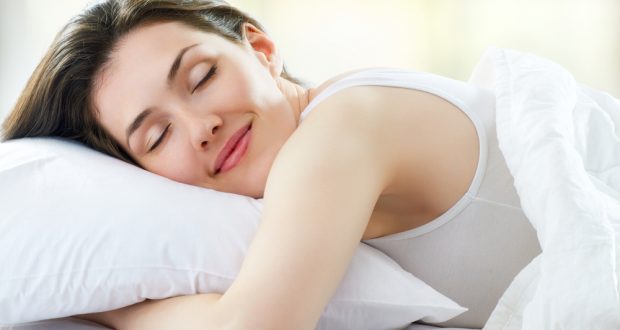By: Guest Author
Published: June 8, 2021
Written By Sarah Kaminski – Guest Contributor
Amongst the general population, there are plenty of people who suffer from sleep disorders. In the US alone, this number is as high as 70 million. That’s slightly more than 20%. But the thing is, this number goes even higher as we age.
According to a 2005 article in the Journal of Clinical Sleep Medicine, between 25% and 50% of all women will have some sleep complaints during menopause.
So, the logical question would be: can better sleep hygiene help with that? And what is it in the first place?
Sleep Hygiene: a Definition
According to a scientific article published in 2014, “sleep hygiene is defined as a set of behavioral and environmental recommendations intended to promote healthy sleep.” It was developed to address light and mild symptoms of insomnia.
Eventually, sleep specialists found that its effect on treating sleep disorders is limited. Nonetheless, it does pose a host of benefits to anyone experiencing light and temporary sleep disturbances.
Recommendations for Better Sleep Quality
On the whole, sleep hygiene relies on a set of recommendations, including (but not limited to):
Keeping a consistent sleep schedule
Most adults need between 7 and 9 hours of sleep at night. But the amount of shuteye you get isn’t the only thing relevant to sleep quality. According to research, irregular sleep patterns don’t just cause health issues like obesity, high blood pressure, and high blood sugar. They also disrupt the production of sleep hormones, resulting in poor overall sleep quality.
Limiting blue light exposure
There’s been a lot of hype about the damaging effects of blue light for the past couple of years. While most ophthalmologists agree that exposure won’t damage your retinas, there is evidence that digital screens delay melatonin production. For this reason, it’s best to lim!t the use of digital devices (including TVs) at least two hours before going to bed to allow the body to wind down properly. Reading a book, taking a warm bath, or doing some form of meditation can be a great alternative to Netflix and social media scrolling.
Maintaining healthy eating habits
Everyone knows about the negative impact caffeine has on sleep quality. However, many people believe that avoiding coffee before bed is enough. But here’s the thing: caffeine is present in unexpected beverages, including some teas and soft drinks. Moreover, there’s one more ingredient that’s commonly overlooked: sugar. A 2016 study found that sugar intake showed a direct relation to sleep quality. So, the less of it you have in the afternoon, the better your rest will be during the night.
Incorporating exercise
There are numerous benefits to leading an active lifestyle. In addition to contributing to your overall health, exercising can also help you sleep better. But, the one thing to keep in mind if you’re looking to improve your sleep hygiene is that you shouldn’t work out too close to bedtime. Ideally, you should stop any medium to high-intensity activity in the late afternoon. It’s also worth noting that yoga has some proven benefits to sleep duration and quality, which is a good thing to know if you occasionally suffer from bouts of insomnia.
Creating a relaxing (and dark) sleep ·environment
One easy way to improve your sleep hygiene is to start treating your bedroom as an oasis of rest. This doesn’t just mean that you should invest in a comfortable and supportive mattress.
More than that, it means you should remove any harsh sources of light, move the TV to a different part of your home, invest in light-blocking curtains, and stop answering work-related emails in bed.
Limiting daytime naps
A lot of people experience an energy crash in the afternoon. And research suggests that a short nap (between 1 P.M. and 3 P.M.) coupled with light activity could be the answer. However, anything longer than 30 minutes poses the threat of messing with your sleep hormone production. For this reason, it’s best to limit napping, especially late in the afternoon.
Managing stress
Last but not least, it’s important to mention that stress makes for one of the biggest sleep disruptors. Whether you’re feeling overwhelmed because of professional and personal reasons, finding ways to manage that stress is crucial for multiple aspects of your health.
Reaping the Benefits of Good Sleep Hygiene
As you can see, sleep hygiene isn’t that complicated to attain. Sure, it takes discipline and a bit of effort, but considering the benefits, it’s more than worth it.
In addition to feeling well-rested and fresh in the morning, paying attention to your sleep quality comes with a number of other benefits as well. These include lowering your risk of heart disease, stroke, cancer, diabetes, and Alzheimer’s.
Moreover, proper sleeping habits can boost your mood and manage anxiety as well as depression. Lastly, if you’re worried about your immune system, weight, or even work performance, developing better sleep hygiene is sure to help.
Conclusion
There you have it: an overview of what sleep hygiene is, how you can get it, and why it’s important.
Now that you have the information, it’s time to start investing in your overall well being. And, doing so by focusing on rest is an excellent way to start.
Sarah Kaminski
Sarah is a life enjoyer, positivity seeker, and a curiosity enthusiast. She is passionate about an eco-friendly lifestyle and adores her cats. She is an avid reader who loves to travel when time allows.
The views expressed herein this article, written by a guest contributor, do not necessarily represent those of the Red Hot Mamas organization. The content is for informational purposes and should not substitute the advice of your doctor.
 Red Hot Mamas In Charge of Change.
Red Hot Mamas In Charge of Change.




